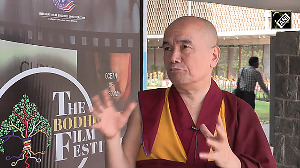
The 2016 Nobel Prize for Chemistry has been awarded for the development of the world's smallest machines. Jean-Pierre Sauvage, Sir J Fraser Stoddart and Bernard L Feringa will share the prize for the design and synthesis of machines on a molecular scale.
"They have developed molecules with controllable movements, which can perform a task when energy is added," the jury said.
"The molecular motor is at the same stage as the electric motor was in the 1830s, when scientists displayed various spinning cranks and wheels, unaware that they would lead to electric trains, washing machines, fans and food processors."
Molecular machines will "most likely be used in the development of things such as new materials, sensors and energy storage systems," it said.
The three will share the eight million Swedish kronor (around USD 933,000 or Rs 6.20 crore) prize equally.
The first step towards a molecular machine was taken by Sauvage in 1983, when he succeeded in linking together two ring-shaped molecules to form a chain.
Normally, molecules are joined by strong bonds in which the atoms share electrons, but in the chain they were instead linked by a freer mechanical bond.
"For a machine to be able to perform a task it must consist of parts that can move relative to each other. The two interlocked rings fulfilled exactly this requirement," the Nobel jury said.
The second step was taken by Stoddart in 1991, when he threaded a molecular ring onto a thin molecular axle and demonstrated that the ring was able to move along the axle.
"Among his developments... are a molecular lift, a molecular muscle and a molecule-based computer chip," the jury said.
Feringa was meanwhile the first person to develop a molecular motor - in 1999 he was able to make a molecular rotor blade to spin continually in the same direction. Using molecular motors, he has also designed a nanocar.
The chemistry prize is the third Nobel to be announced this week.
Yesterday, the physics prize went to British scientists David Thouless, Duncan Haldane and Michael Kosterlitz for their work on "topology", a mathematics field studying unusual phases or states of matter.
On Monday, the medicine prize went to Yoshinori Ohsumi of Japan for his pioneering work on autophagy - a process whereby cells "eat themselves", which can result in Parkinson's and diabetes when disrupted.
The peace prize will be announced on Friday, the economics prize on October 10 and the literature prize on October 13.






 © 2025
© 2025